
Muse & Mastery
Hosted by Aliya Cheyanne, Muse & Mastery is a digital sanctuary for creative thinkers, makers, and seekers. Each episode explores how we can live, create, and evolve in alignment with our purpose.
Muse & Mastery
Dream, Rest & Play ft. Colored Girls Liberation Lab Founder, Jennifer Roberts | Ep. 26
Visionary Jennifer Roberts -- whose story of evolution from educator to racial equity consultant to Founder of Colored Girls Liberation Lab embodies the resilience and power of dreaming big -- joins us as a guest on this episode of The Prolific Hub Podcast!
Hear how Jenn's identity as a Black woman, mother, artist, and dreamer has been shaped by the legacy of the strong women before her, and how it fuels her passion to build a community rooted in freedom and healing.
Watch this episode on YouTube!
To learn more about Jenn and Colored Girls Liberation Lab, visit:
Instagram: @coloredgirlslab
Website: coloredgirlslab.org
Become a Member: community.coloredgirlslab.org
Theme Music:
She No Dull Beat by Nana Kwabena
Festivities in Belize by RAGE Productions
Enjoy the episode?
- Share it with friends!
- Send a voice note or text!
- Rate & review the podcast!
Follow @museandmasterypod on your favorite SM platforms!
Watch full interviews here on YouTube!
Join me over on Substack!
Check out my favorite brands and snag a discount!
Grab a guided journal here!
Are you a creative, solopreneur or entrepreneur who’d like to be featured on Muse & Mastery? Let me know here!
Hosted by Buzzsprout. See the Buzzsprout - Privacy Policy here.
Welcome to the Prolific Hub podcast. I'm Aaliyah Cheyenne and I'm so excited today to be joined by Jen Roberts, the founder of the Color Girls Liberation Lab, and I'm so excited to have Jen on. So, Jen, thank you for joining.
Jenn Roberts:Thank you for having me, aaliyah, I'm excited to be here, yeah me too.
Aliya Cheyanne:I'm so excited to have you. So I just want to give a quick little intro about how I met you and how I know about your work. So I know you through Ashante, and Ashante Renee is a former boss of mine, a mentor and a friend and Jen and Ashante are really great friends and they held a really just, powerful and awesome retreat last year in 2023 that I got to join and be a part of, and that's how I met you in person. But I had seen some of the work of Color Girls Liberation Lab on Instagram prior to that and you know I love the quotes that you share, just from pulling from ancestors and people in your life friends, family, whoever and just sharing really important tidbits of information.
Aliya Cheyanne:I love your mission toward just freedom and liberation and safety for Black women and others, and I'm just, you know, so inspired by what you do, so I wanted to spend some time talking with you today and I'm just so inspired by what you do, so I wanted to spend some time talking with you today and that's how I met you. But, of course, I want to give you an opportunity to introduce yourself to the people and share more about you. So who is Jen. Who are you and what do you want the people to know about who you are today?
Jenn Roberts:Well, first, thank you for inviting me. I love you know, I love hearing when dreams come to pass, and I remember hearing you talk about wanting to do this when we met each other, and so just congratulations on you know, something that you thought about in your brain coming out in real life. So first just want to say that coming out in real life. So first just want to say that. And, yeah, I feel I try to think about how I describe myself and how I want people to see me. Sometimes changes depending on what part of my identity I feel like I'm leaning into more at the time, but I would say that I want to be seen as a Black woman, a mother, an artist, a creative, a dreamer, a designer, a person who transforms my own self and creates spaces that transform others.
Jenn Roberts:Grew up in Richmond, virginia, and then have made my way to Atlanta and Chicago and now right outside of DC to live, and so I have had really great experiences in my life that have taught me a whole lot of things and got me to meet a lot of people, especially a lot of dope Black women, which I've been really blessed in my life to have had so many really dope black women on my path and folks that really show up for me, and so I think all roads were leading to Color Girls Lab, in a sense, and creating what I feel like I've always had, that I feel like other women haven't been as fortunate to have, and yeah, so that's a little bit about how I see myself or how I'm thinking about myself in this moment. I feel like I'm a multi-faceted so, like at any given moment I'll be like I want to highlight something different, but yeah, that's how I'm seeing myself today.
Aliya Cheyanne:I love that. I think that's so beautiful. One of my favorite quotes or sayings that people say is that, at the end of the day, we contain multitudes, so how we show up in different spaces varies and, yeah, I feel like I would describe myself one way today and a year from now it might be different. So I feel you on that, but thank you. So, yeah, I would love to dive a little bit more into Color Girls Lab Color Girls Liberation Lab, and I would love to know what you were doing before you found this purpose and this calling. What work were you doing prior and what kind of led you to wanting to create Color Girls Liberation Lab? You touched on it a little bit before, like creating more spaces, like what you've created for yourself and for others. But what was that transition like from what we're doing before to jumping into this work now?
Jenn Roberts:Yeah, I started my career as a teacher on the south side of Chicago, so I taught third grade and that experience taught me a ton. And when I was a teacher I didn't think I was going to teach forever, but I did think I was going to maybe venture off into med school, possibly at some point. My undergrad degree was psychology, pre-med, but teaching really opened up um one me realizing that medicine was not the path that I wanted to use to make change um, and me really being in a place where I could see the inequities I had grown up with show up in what my students were going through decades later Right the same things my brother was dealing with my students were dealing with to almost two decades after that.
Jenn Roberts:And so I think it changed my idea of how I wanted to leave my own personal mark in the world, leave my own personal mark in the world.
Jenn Roberts:And so I moved through different education spaces, really focused in on racial equity in particular in education specifically, and I found my way to DC public schools and I worked there for a few years and when I left DC public schools, I started my own race and equity consulting firm.
Jenn Roberts:And that was really because at the time this was almost a decade ago that is where I thought I could make change.
Jenn Roberts:I felt like I had a way of going about talking about racial equity that was very community centered and that focused less on just calling out things that we had gotten comfortable with, but really naming white supremacy what it was like talking about racial equity in a very direct way. And so spent my time doing that and in that process, and so spent my time doing that and in that process, you know, I came across a lot of Black women who were either leading this work at their organization, and so I was working with them, or were just at the places where I had either past worked or might have been a client of mine, and no matter how great we got the organization to be right like those Black women still were marginalized in that space, right, no matter how much work we did, no matter how much it felt like they belonged a little bit more, like they still had no place to process what had happened before, and like how they were reconciling all of the shifts that people were making without what they felt were probably genuine intentions.
Jenn Roberts:And so, you know, I started thinking about how much of a toll the work was taking on me and what I was watching happening to friends of mine and other Black women too, and realizing, like the reason why I was okay is that I had this circle of Black women around me that I could say the truth to, and then they could say, well, what are we going to do?
Jenn Roberts:How do we make this feel better? And in the process, I was also to do how do we make this feel better, and in the process, I was also leaving a relationship and so that I had been in for almost 20 years and so I was going through multiple transitions of like, not knowing if the work I wanted to do was where I wanted to be and that I could see something better for us and wanted it to be a space of imagination and play and design. I had been working in spaces around breast pump work and doing hackathons around hacking the breast pumping and family leave and things like that that pertain to what women were going through, and I was like, well, what would that look like?
Jenn Roberts:if we just did that amongst ourselves. Like what if we spent more time like using our life like a laboratory and playing around and figuring out what we wanted, versus taking all of these things?
Jenn Roberts:that people have told Black women we should be. And so the lab really birthed out of like what if I could create my circle of friends for everybody? And what if we could just get in here and be like, well, I wanted to look like this and I wanted to look like this. Well, let's try that and see, you know, and so I think, the combination of, like lots of things, the crossroads of my, you know, mid at that time, my mid thirties coming out of a relationship I've been in for a really a marriage, I've been in for a really long time transitioning in my workspace as an entrepreneur and as a racial equity consultant in the world in 2020, like you know, everything just converged and it was like this is what we're, this is what I want, so I'm going to create what.
Jenn Roberts:I think, I want what I think I hear other people want, and if they want it, they'll come and we'll see. You know, and that's really what, what? How it came about. I had the space to dream about it and I had people in my life who were like we're going to help you execute it. And so that's where we are now, almost three years later.
Aliya Cheyanne:Oh, my goodness, I love that. Having the space to dream about something, because only you can visualize what you want to create and just having the space to do that is so important and what led you to this moment. Even thinking back on the racial equity work you were doing with other women and realizing what you were feeling and experiencing but also witnessing what they were experiencing in different places is so important. I remember working at an organization that was super, super committed to racial equity work, being a part of the racial equity working group and still having to navigate certain experiences as a Black woman, despite what the organization was supposedly doing. I don't know how to describe it not out of body experience, but it felt so like it's like is this real?
Jenn Roberts:Like a twilight zone.
Aliya Cheyanne:Just I don't know how to exactly Twilight zone. That's exactly right and I think it's so beautiful to you know, have recognized those things and made the transition and then created the organization that you have now, having space to dream something beautiful for yourself and create the way for others to be involved too. That is definitely an act of liberation, so I love that. I think that's really amazing. So, yeah, I think people talk a lot about founding and creating businesses and diving into creativity and I think on some aspects of it, it all looks really just transformative and I want to do it and I can do it.
Aliya Cheyanne:But there's a lot of hardship that goes into doing it too. A lot of people don't recognize the grit and the grind that goes into getting to the other side. So I'd love to know maybe one of the toughest aspects of even founding your business. There was an aspect of going through some hard and difficult transition, transitionary things in life, yes, Um, but actually cultivating the dream and building the business, like what was one of the biggest kind of hurdles you had to get over and even starting it, um, in the very beginning.
Jenn Roberts:You know the funny thing about it, and I'll I'll tell you two things. Like what was interesting in the start when I first started my consulting business, that made it easier, I think, to do this one. At that time I honestly thought I had a bit of a cushion and so I didn't have as much fear. I kind of was like, oh, you know, I have a second income coming in, because at that time I was married and I was like, oh, I can, I can do it, right, like I can leave married. And I was like, oh, I can do it, right, I can lead. And then when all of that kind of fell apart, right, then it really became a moment of for me well, all I have to do is commit a year to this. I was like I know my skills right, I can get a job, I can find somewhere to work, so let me just go hard on this for a year, and this will give my brain a chance to rest from the last place I'm at and then I'll transition into something else. And that's really what I tell.
Jenn Roberts:I have told my asked myself that question every year for like the last eight years. Like it's, I've never saw myself as being a permanent entrepreneur. So for me it really is a check-in with myself every year. Like we still want to do this girl. Like or do we want to go put the applications in for a job? Like, what do we want to do?
Jenn Roberts:And I'm not saying that to discourage people, but I'm saying it to like. I do think that there's a level of flexibility that comes with entrepreneurship that makes it really important for you to decide why you want to do it, and so I wanted to have the flexibility to be available for my daughter. Like she was young, I wanted to be able to go to school trips, I wanted to be able to end work early and pick her up from school. Those were the things that were important to me at that time, and so I made the decision about my career, and I'm still getting out of a little bit of debt because of that and all of these. I made choices, but they were about me living the life that I felt like was most free for me, and for me that meant entrepreneurship. That gave me the most flexibility, even with all the hardship that comes with that.
Jenn Roberts:Now I'm at the point where she's a little bit older, so just saying I want to be there for her is not a good enough reason anymore to stay in entrepreneurship All of the challenges that do come with it, and especially now me, given the space that I was in before Color Girls Lab, and Color Girls Lab still sits in the racial healing, racial justice space. So, essentially, I'm just changing the way I do my work, but I'm still doing the same thing, and we know what has happened since 2020 in terms of the support that's being given to those of us who do this type of work. So, like I had, a lot of success in 2020, 21, 22.
Jenn Roberts:It is a lot harder right now to have to keep that up at that same level of pace, right? So just being flexible or just having time for my daughter, that's not a good enough reason anymore. Like I have to have another reason that is propelling me to want to deal with all the other things, and for me, that is that I really believe that I'm here to create space for people to be free. I believe that is one of my values for myself and that is a value I have for what I want to see for other black women. And until I could find I don't know that I could find any other space where I could do this, that is now become my motivating factor for saying, like I have to figure out whatever. That means, sitting down with the people who love me, to be like how can I generate whatever income I need or the space I need and to just trust my ancestors and God that they put me on the path.
Jenn Roberts:So the provision is going to be made and do the thing and do the thing, and so, like I think the hardest part for me has been like trusting myself and trusting, like God and my ancestors, that I'm doing exactly what I'm supposed to do, cause I do feel good doing it. I don't feel uncomfortable, I don't feel like I felt like when I was in my other jobs. Right, I feel good and there's a reason I feel good because I'm supposed to be doing it. So that means sometimes I've had to get really creative about how I get to keep doing it, you know and right now, to be completely honest, like the hardest part is money, it's capital.
Jenn Roberts:Like I have every reason to go try to put applications in right now. Like it is really, really tough for business owners and particularly for those of us who are working in this space. But you know, like people are here, people are helping, people are showing up for me. Like I'm putting in, you know, every grant application. I can think of like all the things that we all do when we really want something. But I would say at first, and sometimes consistently, it's been trusting myself and then also you double on finances onto that. I think that that plays a part too. But I think my approach to the fact that I never saw myself at first as being an entrepreneur for my life even though I do now I didn't see that at first it also lets me detach from the idea of entrepreneur as a persona. I'm not married to that. So if.
Jenn Roberts:I decide at some point in my life that it's not right for me to be an entrepreneur anymore and I'm going to go because I found a place that I really want to do good work for, I will. I will make the yeah, just like I've decided that the entrepreneur pursuit I was in at one point is not the right one for me and I'm shifting myself into more of the work that the lab is doing. So I think that's the joy of being an entrepreneur if you let it be.
Jenn Roberts:But also you've got to trust yourself, you got to have good people around. You know all of that stuff.
Aliya Cheyanne:Yeah, I think that's really powerful out of certain workspaces and environments and like shifting into a consulting space, cause I did start a consulting business too. Um, like in yeah, coming up on four years now, um, and I was doing consulting and communications and I was doing that for maybe about two years and then I was like I don't know if I want to continue doing this, like I am going to put the application in, I am going to go get the job. And I did that and I would say almost immediately I was like yeah, no, no, sometimes you be there. Um, I was like sometimes you be there and yeah, I was like no, and yeah, yeah, and I'm grateful that I, you know, obviously still have the business that I created. I can continue to build on it. I can continue to pivot and grow and do additional things that I want to do to add on to that.
Aliya Cheyanne:But you're absolutely right that it is a struggle. I go back and forth with what people say around security when it comes to work, because you can have some degree of security with a job to the extent that the job keeps your role. At any given moment the job can decide to let you go, but I understand the degree of security with that, but it's a different beast chasing security with entrepreneurship because it ebbs and flows and it comes in waves. You really do have to lean on your community. You really do have to humble yourself and get comfortable with asking for help and sometimes that's hard, sometimes it's a hard thing to get over. Yeah, like it's not always comfortable.
Aliya Cheyanne:So it's just really interesting. But listen, I've also learned that there's no pride in asking for what you need. Like I'm leaning on my community heavier than I've ever like tried to lean on them before. Like just you know showing up for me in ways that I need and pursuing all the grants. Like you're pursuing the grants and just you know doing my own due diligence about how I can raise money for what I want to do and um, but also being grateful for people in my community who are showing up for me in different ways, like even this conversation between you and I. And you know reaching out to folks and them even giving me the time of day and saying yes to, like you know educate me and being vulnerable about your journey and the hardships, because it's not always easy hard to financially keep myself afloat.
Jenn Roberts:I knew that, especially because of what I do, there would be these ebbs and flows of money, and I'm still learning how to deal with that. Right, you learn a lot about your financial health. Doing being an entrepreneur like, Ooh boy, like I have to get myself together and I'm still not all the way together. Like I've had to get myself together and I'm working on that, I think that you know.
Jenn Roberts:on top of all of those things, though, what I think you learned the most is what, if you let yourself, is what you really want, you know. So, like I, just like you said, you went back and then realized, nope, nope, nope, this is not for me. I have other women in our community who took time away from a job, took some time to do what they wanted to do on their entrepreneurial journey, and then really did decide like, hey, no, I do want the particular type of security that comes with a job, but I know, I'm not going back for anything less than this, this or this. It needs to be this type of person that I'm working with this type of space. And so they went back into the workforce with a different mindset about what they were willing to accept, willing to put themselves through, and so, yeah, they are happy in the space they are in now.
Jenn Roberts:They would be just as happy if they weren't in it and they were doing their own thing too.
Jenn Roberts:And now they know that, like I have both, like you said, I know I have this that I can go back to, and to me that's the part of the space I'm creating, or the space I see other women creating for Black women to dream bigger and dream more out loud.
Jenn Roberts:That's the space that I feel like we're offering Choices. You should have a choice, you should get to have a choice, and it shouldn't be hard for you to be able to exercise that choice that you dreamed up. Like we should be able to find you, the community, the space, the resources for you to be able to at least try it and then decide like nope, that ain't what I want, or yep, that is what I want, or I want some version of this. Let me play some more. And that is the space that I hope to provide and the example that I hope not just from me, like from all the other women who are in our space the examples of what it looks like to do that type of playing with your life until you find the free space that feels right for you, whether that's a nine to five job or whether it's becoming an entrepreneur, and for me and many other people around me, entrepreneurship is the right choice for us and other people won't be, and that's okay.
Aliya Cheyanne:Yeah, yeah, yeah, I love, I love that Like, just that terminology of like finding the space to play and see what works for you. That's so important because when I took my first career break um, that was the job of Shantae and I were both at together and I knew immediately after leaving that job that I was like, yeah, I need something different, I need to decompress from the experience I had. First and foremost and these are going to be some of my non-negotiables entering the workforce again. There's no way I can deal with certain environments, certain types of leadership, like all of these things Like cares, what matters to me, and benefits too, because I'm also like the benefits of jobs and I've had bad benefits of jobs.
Aliya Cheyanne:I'm just like listen, these are the types of things I'm going to tolerate and these are the things that I'm not. These are the types of things I'm going to tolerate and these are the things that I'm not. So, I think, just having that clarity and being able to in my case, I've teetered between both over the last like several years but just being clear on what I need and what I want, and having the space and the capacity to do it, because there are a lot of people who want to do it and they don't have the space to play, they don't have the space to dream. It's just focusing on how am I going to pay this next bill?
Aliya Cheyanne:or get this next meal on the table, yeah, there's no space to even play or dream. So even recognizing the privilege and the ability to be able to do that, or making the choice that all else be damned, I'm going to do it anyway.
Jenn Roberts:It's so important so.
Aliya Cheyanne:I feel like you might've answered this without me asking directly, but I would love to just get a firm answer of what you feel like is one of the most or the most kind of rewarding thing about the work that you do. Like I know creating the space for yourself and other women is rewarding, but like in your heart of hearts, like when you think about your purpose, your mission, like why you did all of this. Like what feels good in your body and your mind and your heart as you do this work each day. Like what is the most rewarding thing to you that you can think of.
Jenn Roberts:I think I have two, because I have one that's like rewarding because of me, like the work I've done, but then there's like for myself, my internal work, but then there's parts of it that are rewarding because of what I see other people getting to experience.
Jenn Roberts:So, like I, the most rewarding thing, I think, for me is that um and I want to say it might've been Ashante that said this to me she was like this lab is not just for other people, like this lab is for you too, and I feel like that is what I have been able to experience is my ability to dream bigger, my ability to just trust and really lean into the things that feel good to me and create more, and so I think that has been the joy of what I've been able to do is just come up with ideas and watch them happen and trust myself that they can, that I can do them. That has been probably one of the most rewarding things as of late for me. But then I just anytime I hear a woman who has been in our space say that this space has changed them, and I've been hearing it a lot lately.
Jenn Roberts:I'm so grateful, like that is probably the most rewarding thing outside is that this space changed me or this space has me dreaming more. Those types of compliments are, you know, like. Those are the things that make me tear up. Those are the things that make me be like, nope, you can't go back to a regular job.
Aliya Cheyanne:You know, like those are the things that are like no, no, no.
Jenn Roberts:That are like, no, no, no, like we have to keep going because people are operating differently, because they found themselves in the space with the women that come in here, Like they have found their way here and it has allowed them to just see something so different for their lives and to watch it happen in different ways through different women, like that has probably been. I'm just grateful to be able to do it that.
Aliya Cheyanne:Yeah, yeah, yeah, I feel like. So I've only gotten to experience like one in-person experience because of the retreat last year, but I see so much of the spaces that you're cultivating for women, like I know you just had like a really fun um listening party for Cowboy Carter and it was really nice to see.
Aliya Cheyanne:I know I know that blip of a reel is only like a clip of just the joy and the fun that was in the room, but even just watching that I'm just like damn, like look, look at community, Like this is so nice, Like how fun would it have been to be there and like join you all, and I even think about even that one time at that retreat, just the. Oh my gosh, my emergency alert is going on because of the earthquake. That's so embarrassing, Sorry.
Jenn Roberts:No, it's not embarrassing. At least you're working now.
Aliya Cheyanne:Yeah, but I'm also like that earthquake was like before we even got on to do this. What is? Going on you are so late, I would have already been buried beneath the rubble at this point.
Jenn Roberts:You are so late. I would have already been buried beneath the rubble at this point. I'm just like girl, let me live please. I'm not ready for the apocalypse. You're not ready.
Aliya Cheyanne:We're not. Listen, I'm not ready at all. I say all the time I love certain shows that are, like you know, apocalypse zombie. I'll watch that stuff. But in my reality I say all the time, listen, just just lay me down, cause I'm not fighting with y'all over food, like I'm okay take me to my ancestors. I'm out take me to the ancestral plane. I'm good. Um, yeah, they talk about aftershocks. Now I'm like I didn't even feel the first, I didn't even feel feel it when it happened.
Aliya Cheyanne:Okay, about the aftershocks anyway, but I was saying like even thinking back to the retreat and just the space that you know you cultivated for us, like, um, we did the workshop with the flowers and like creating our own, you know flowers and sage sticks that we could burn, and just even learning more about herbal medicine, really, which is deeply rooted to our ancestors, like I, I'm. I'm gonna pull this all together, but recently I went to New Orleans and I went with my mom and my sisters and I have complicated feelings around visiting plantations, but it was my third time visiting a plantation. They have a bunch of them out there. They have Oak Alley, they have the Laura Plantation and then they have the Whitney Plantation and this time I went to the Whitney because the Whitney, it honestly, compared to the others, it does center the lives of enslaved people more than the others, whereas the other ones you go to it's all about the big house and the owners. I'm like, I don't care, bro, like, and it was so interesting, it's so interesting to me.
Aliya Cheyanne:I feel conflicted about being on ground like that, knowing the history, but also finding peace, like it was a beautiful, peaceful day. You know they have these huge oak trees everywhere and other trees that have been growing for hundreds of years. And I'm just like I always think to myself, like the things that the trees witnessed and the things that the trees know from that land and that ground. I'm just like it's a very surreal experience going.
Aliya Cheyanne:But I remember reading the stories, like there was a professor who did a huge project to collect the narratives and the stories of people who worked the grounds by force because they were enslaved. But there was one in particular and I don't even remember the specific name, but this person was retelling the story of how they couldn't have access to medicine or medication because they didn't have money and it wasn't you know. They weren't able to do it because they were enslaved. People, forage from the land around them, passed down from generations, about what they knew, would heal wounds, what they knew would help settle their stomachs, what they knew was good for pain.
Aliya Cheyanne:And there's a foraging group that I'm a part of here in New York City and I've gone on some foraging experiences with them and learned more about plant medicine and to bring it back to the event last year with you and the workshop with the flowers, just even learning more about just the herbal medicine of some of the flowers and what they represent, what they meant to our ancestors, what they mean spiritually, is so important I still have. I never burned my stick.
Aliya Cheyanne:I still have it, I keep it on my altar yeah, I keep it on my altar and the beauty of having that experience and being able to bring my grandmother who loves gardening, who loves flowers, who loves that from a time she recalls, back home in Jamaica with her own grandmother, and how we keep these traditions rich and alive and we create space for each other to play and call on things that our ancestors knew and know and hand down to us in different ways, I thought was so beautiful and it's a memory and an experience that I keep with me.
Aliya Cheyanne:So I say all that to say that what you're doing has such a huge purpose beyond you, bigger than you. The way that you're impacting people in your lives, the memories that you're creating, the experiences that you're creating like they're timeless, they mean a lot, they go deep and they go back further than you know, because there's so much that you can recall, like when you have a moment to play and to dream and to do these things and think about what it signified for people in your past too. So I'm just grateful for the work that you're doing and I'm not in the DMV area, but I see it and I love it and I always share it and it feels like home. In many ways that was a very roundabout way of saying it feels like home because it calls on memories that I might not remember firsthand but maybe, like my ancestors, might remember. So it feels very important and significant to me and I can call on those things when I need them. So yeah, that was a lot, thank you.
Jenn Roberts:No, thank you so much. Like you know that that feels good, like cause home, like for if. If you're using a metaphor like that, that means home feels good to you and that is so important to me in this space is that people know it feels good.
Jenn Roberts:And um one of the things I've noticed recently is that more people are okay showing up by themselves to things that I do. I don't know about you, but I'm kind of extroverted. As I am, I have a lot of social anxiety, so going to something by myself takes a whole lot of effort, and so the fact that I know that's probably the case for a lot of people and they feel okay showing up by themselves because they know I might not know anybody there and that's okay, because anybody there is going to feel good.
Jenn Roberts:Like that is what I want. Like you know, like that if no place feels safe, you know you could feel safe here, and so the idea of this place feeling like home, I really appreciate that and I do think that we're healing our ancestors when we do this type of work. I think we're healing ourselves. Oh yeah, I think that our ancestors are happy and glad that we are taking time to do some of these things.
Jenn Roberts:Like I still think about your grandmother and how much she lit up, like doing all of the flowers and like you know, telling us what she remembered and like what she knew, like all her knowledge, like, and I and I, when you're talking about making memories, like that was a, that is a core memory for me. I'm not going to forget that. Like her being there was really important and I'm so glad that she was, and it was very reminiscent of my own grandmother, who was a master gardener and like really just beautiful, always grew beautiful flowers, and so you know, I think you're right, I think we're healing our own children, we're healing our ancestors, we're doing all of it and it feels good and it also just helps us not tolerate the BS Like we just like we're not going to allow that type of feeling to infiltrate. But so much after you can experience feelings like this.
Jenn Roberts:And so yeah, the community part is it like the cheat code is gonna be being able to get to your friends with on foot. You know, like who, how close are you to your community? Like can you walk? Can you get to that?
Aliya Cheyanne:yeah, like you know that's going to really be it, yeah, yeah, and creating community. I think about all the things I've gone to alone, like in the past, because either people weren't available or interested, but I still wanted to do it and I showed up anyway and had a great time and made great memories. So I think a lot of people are just even me too a lot of people are just looking for community. They're trying to find their people and their tribe, if they haven't already, or if they have, maybe trying to expand it. And I think the more spaces that exist where people can find themselves and see themselves and do that, the better it is.
Jenn Roberts:So yeah, Agreed.
Aliya Cheyanne:Okay, so I feel like we talked about a lot of heavy and deep stuff, but I would love to know. I would love to know, like I've heard so much from many entrepreneurs, that, like having a ritual, having a routine, having self-care is so important because it can be very heavy and very hard. So self-care is so important because it can be very heavy and very hard, so I love to know what kind of keeps you grounded in this work that you do every day. What are some ways you take care of yourself to be able to give of yourself so much to do the work that you do?
Jenn Roberts:Yeah, so when I'm doing what I'm supposed to be doing, dance is a ritual of mine and I'm in the studio taking dance classes and I have been a little out of it, out of that habit, for a bit and I'm kind of like discovering why it's been harder for me to go, and so I've been like journaling about it and talking to people about it.
Jenn Roberts:I'm realizing that I knew, I always knew, dance was really important to me and is a very important ritual, both for my freedom practice but also my rest practice, and you know yeah processing when it isn't hitting the way it used to, has been interesting for me to like process, why that is so.
Jenn Roberts:But dance is normally a ritual, and then also I'm really into music, and so either just playing an album that I really love from top to bottom and dancing around in my house or going to a show from some of my favorite artists, like, I try to make time to do those types of things, and then in general I really love good food with good people, and so a lot of my rituals do have to deal with.
Jenn Roberts:Some of them are alone, but a lot of my rituals have to deal with community, like I like to be with people, and so because I create community, sometimes my reset things are community where I didn't have to do the creating, where I just get to go with the people who I know are going to charge me up and make me feel good, so like a really good meal with like two or three of my close girlfriends where we can just laugh and we're not thinking about like we just trying all the things.
Jenn Roberts:And you know, that's kind of something that I do pretty much on a monthly basis just to like reset myself with my people. So those are like my community rituals that I feel like are important to me. And then my like kind of solitude rituals are I do daydreaming. I have a place near my in my room that I like to sit in, that has like I can see out the window and I'll just sit there and I'll daydream a little bit, drink some tea, you know that type of thing. So those are kind of the things that I do to reset myself. And I'm actually it's interesting you ask that question because I'm in a bit of a transition right now. So I'm actually trying out new rituals, like I'm trying to get used to morning a new morning and evening ritual that's going to work better for me. I just got recently diagnosed with ADHD, so I'm like also like I have to get my routines in order.
Jenn Roberts:And so this has been like a time of experimentation for me, too, where I'm like, okay, I have to actually need to decide some other rituals that will make me feel both good in my body, but also just have my mind set for the creativity. I want Peace of mind.
Aliya Cheyanne:Yeah, so yeah, I love my rituals, man.
Jenn Roberts:That's the freedom that you get from entrepreneurship to do that if you let yourself. I feel like that is a freedom I have gotten from entrepreneurship I don't think I would have had in the same way in my other regular job, and I value it a lot.
Aliya Cheyanne:Yeah, oh yeah, I love all of those. I'm more introverted. I feel like I can be an ambivert when I need to be, but I'm definitely more introverted to be, but I'm definitely more introverted. But I also love like connecting with my friends, like on a, on a somewhat of a basis or a schedule kind of so like some people, we have things like penned on the calendars. Like others, we just hit each other up like when we're missing each other. We want to do something. So I love that. But also one of my solitude rituals is giving myself the space to daydream, like I also have a cozy spot in my room where I drink my tea. That's by a window. So I love, I love that. And, yeah, I like one of my one of my best friends also struggles with like attention deficit disorder, adhd or ADD, and I'm noticing also that a lot of Black women are getting diagnosed with things so much later in life because certain things show up differently for us.
Aliya Cheyanne:So there's like a wave with women getting diagnosed with ADD or ADHD, but also like learning there on the spectrum like of autism and like so many things, because it shows up differently for us or you know, we're learning that anxiety shows up differently for us than it typically does, for you know other people, so it's just very interesting that so many of us are learning new aspects of ourselves later in life when it could have been helpful to know sooner, so that you don't think like something's wrong with you, you don't think you're great, you know like you could have. So many of us could have learned to manage and navigate life differently had we known sooner. You know.
Aliya Cheyanne:Absolutely we known sooner. You know Um, so I definitely am sending you love and care on your support with um and support on your journey with that, as you're learning more about it and how to like reshape your life, basically, um, to hold space for these aspects of yourself and how it shows up in life and work and everything else. So, yeah, I think that's really interesting. Thank you for sharing that as well.
Jenn Roberts:Oh, thank you.
Aliya Cheyanne:Yeah, of course. Yeah, I don't know. I feel like I don't know. This has just been really great, but I really have enjoyed this with you Like.
Aliya Cheyanne:you're, yeah, sharing so much wisdom and I think that's been really powerful. But something that I find interesting is the way that different people think about legacy the work they're doing. For some people, that looks like you know parenthood and their children. For some people, that looks totally different. So I would love to know what you think about legacy, and more about the legacy you're building and what that looks like to you.
Jenn Roberts:Yeah, I think about legacy twofold, Like guess, this is just my philosophy on almost everything is both in small and big fractal thinking a daughter. I'm constantly thinking about what life is going to look like for her and how I leave. I don't know that. I personally, though, I think I'm putting things into the world that are good.
Jenn Roberts:I don't know that I personally can make this world any better for her, but I do hope that I am showing her some ways to navigate it better right To navigate it better than I did, to navigate it better than her grandmother did and her great grandmother before that right and I hope that I'm showing her ways to live freely, to make her own choices, to stand up for herself in the way that I'm doing that myself, not because I'm always telling her, but because she literally sees me do it. Like she said, she's seeing me rest and she's seeing me take time for myself, like I want to be a model in that way, because I really think I hope my legacy is like starting to be one of the people in my lineage that says that rest is ours for the taking and that dreaming is what we do. Oh, yeah, and so.
Jenn Roberts:I think, that that's what I hope I'm offering to her, that I hope that makes it easier for her children and her children after that and everything.
Jenn Roberts:And then, on the communal side of things, I think I'm doing and trying to do that same work in community with Black women through the lab, so that we can have the same thing, that people just have these examples that they can see of what it looks like to be and live freely, and that it looks a lot of different ways, you know.
Jenn Roberts:And so I think I hope my legacy is that people look back and say like that person or that space or people who were in that space taught me how to be more expansive in what I believe was possible for myself. And so, yeah, I think I look at legacy both for my family and then as a community as a whole, and so I don't know that anything I do is going to be big enough for it to be remembered or go down in history. But I do know that energy permeates and it doesn't go away, and so I hope I'm putting the right the energy that will keep these, like you know, these feelings of freedom and this ability to want and desire it, like in, you know the folks who have been in my orbit's lineages for forever, until we don't exist anymore, so you know.
Aliya Cheyanne:I know, that's so big, jen, that's beautiful and that's so big, like, on the one hand, to, on the one hand, to say like you don't know how big of a print this work might leave, and then, on the other hand, to say like I'm impacting, I want to impact lineages like that. That's big and I think that's exactly what you're doing like whether you notice it or not, you're planning. You're planning big seeds. You're planning big seeds.
Jenn Roberts:Thank you and you know I think I make myself not feel the way that the reason why I was like, oh this doesn't feel like I'm gonna leave, I guess when I think about doing something like monumental, like something that might end up being in a history book or showing up like I don't see myself doing anything like that, you know.
Jenn Roberts:But I think it feels less daunting because I'm just doing my part with the locus of control I have. And that's the part that I think we all could do with the locus of control I have, and that's the part that I think we all could do, like we all can do more within the locus of control we have and we don't always use that. And so I think it feels less daunting because I feel like I do have a good community and I do feel like they trust me and so within this very small locus of control, I think I can do a lot to change mindsets, right. And so I'm going to just do that, and I know those people got their own locus of control that then they can change something and I'm going to just trust that they will. Like I'm going to just do my part in this so that the pressure is off. I'm having fun with it If we impact a thousand people, great, but guess what? These 10 people that are right here?
Aliya Cheyanne:I know they're different and so I'm going to just go ahead and play with that.
Jenn Roberts:So I think that that is what I try to focus on more, and that really came from doing all this racial equity work. I had to let go of the idea that I might not ever see what I'm dreaming of in my lifetime, but I do know that there are some very small microcosms of people who operate differently, because we made something really great together.
Aliya Cheyanne:Yeah, that's really powerful and I love that. I wish I still had this exact quote in front of me. But I saw something the other day, and I don't remember where, if it was Instagram or TikTok, but the person was basically doing the math and saying it took this many ancestors to make you and it was like over. However you got to this number, it was like over 240 something or 250 something, ancestors to make just me.
Aliya Cheyanne:When you think about, all the sets of parents that had to come together to make me, to make my parents, to make my grandparents, to make my great-grandparents, to make my great-grandparents. And when I say you're planting seeds is, even if your name or Color Girls Liberation Lab doesn't go down in a history book, you're planting a seed. Now that, many generations later, when we're not here anymore, someone is going to feel like I have the space to rest and I have the space to dream, because my ancestor did that and they planted that seed going down, and I think that's so beautiful and I think that's just more powerful than you know. So you're not going to feel all of it now and in this lifetime you're making a huge difference for lifetimes to come, and I love that.
Jenn Roberts:Thank you, I trust that too. Yeah, I think that's really great.
Aliya Cheyanne:For a while you've had to pivot and navigate and overcome and see things grow and make changes, and I would love to know if there was one piece of advice or if there was something you wish you knew when you first started that you think would benefit another entrepreneur who's starting out now. If you have any tidbits of just advice or wisdom you'd like to share, I'd love for you to share that with our audience.
Jenn Roberts:I think, get the right people around you whatever the right people are and be like people you can be vulnerable, with, people you can ask for help from or who can find you help, even if they can't get it they can't give it to you but that you can ask and say that you need help from. I think those are the people that. That is what I wish I would have done more of in the beginning and that I'm glad I have now. And I say that because there's so many times where either we think we're by ourselves in a business mistake or a business venture and we're not by ourselves.
Jenn Roberts:There are other people either struggling through the same thing or who have overcome the same thing, and as soon as we open our mouths and ask for help, we usually find out we're not alone, and then we can get about the business of figuring out how to fix it. And so I just wish I had told more people earlier things that I was struggling with and found the right kind of crew of people to have around me that could help remind me of things that I had promised myself I would do, and then also that I could be vulnerable with and ask for help from. I do think I have that now and it's making a big difference, and so that's why I wish in those first few years of business I had done that. I don't know if I had as many examples to look at, and I feel like I have way more now, and so, yeah, that would be my advice A good core group of people that you can trust and be vulnerable with and ask for help from.
Aliya Cheyanne:Jen, I just thank you so much for taking some time to chat with me and the audience and share more about your journey and your work. I really appreciate it. This has been really dope and you're so knowledgeable and so wise and this is just really great. So thank you so much for coming on.
Jenn Roberts:Thank you, I had such a good time. I appreciate you asking me all these good questions, so thank you.
Aliya Cheyanne:That makes me happy to hear too. So yeah, so please let the people know where to find you. Yeah.
Jenn Roberts:You can find out more about Colored Girls Liberation Lab at coloredgirlslaborg on the web or coloredgirlslab on Instagram, and then, if you're interested in becoming a member, you can find that out on our website or go to communitycoloredgirlslaborg.
Aliya Cheyanne:So all of those places are where you can find out what's going on with us amazing, and I'll make sure that I link that in the show notes as well, so it's easy for everyone. And thank you again. This is great, thank you.
Jenn Roberts:I had a great time yay.
Podcasts we love
Check out these other fine podcasts recommended by us, not an algorithm.

ShxtsNGigs
shxtsngigs
LOVERS by shan
LOVERS by shan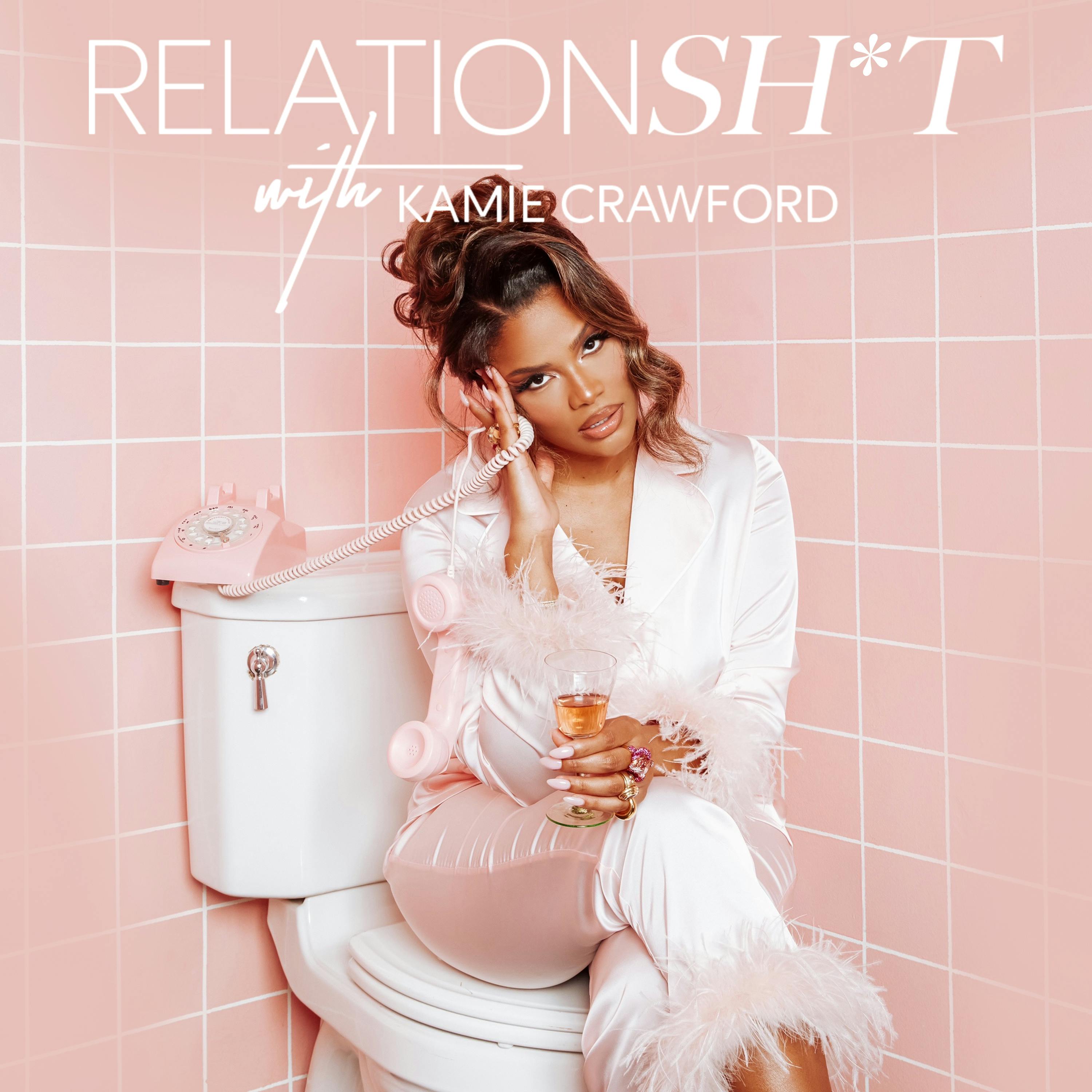
Relationsh*t with Kamie Crawford
Kamie Crawford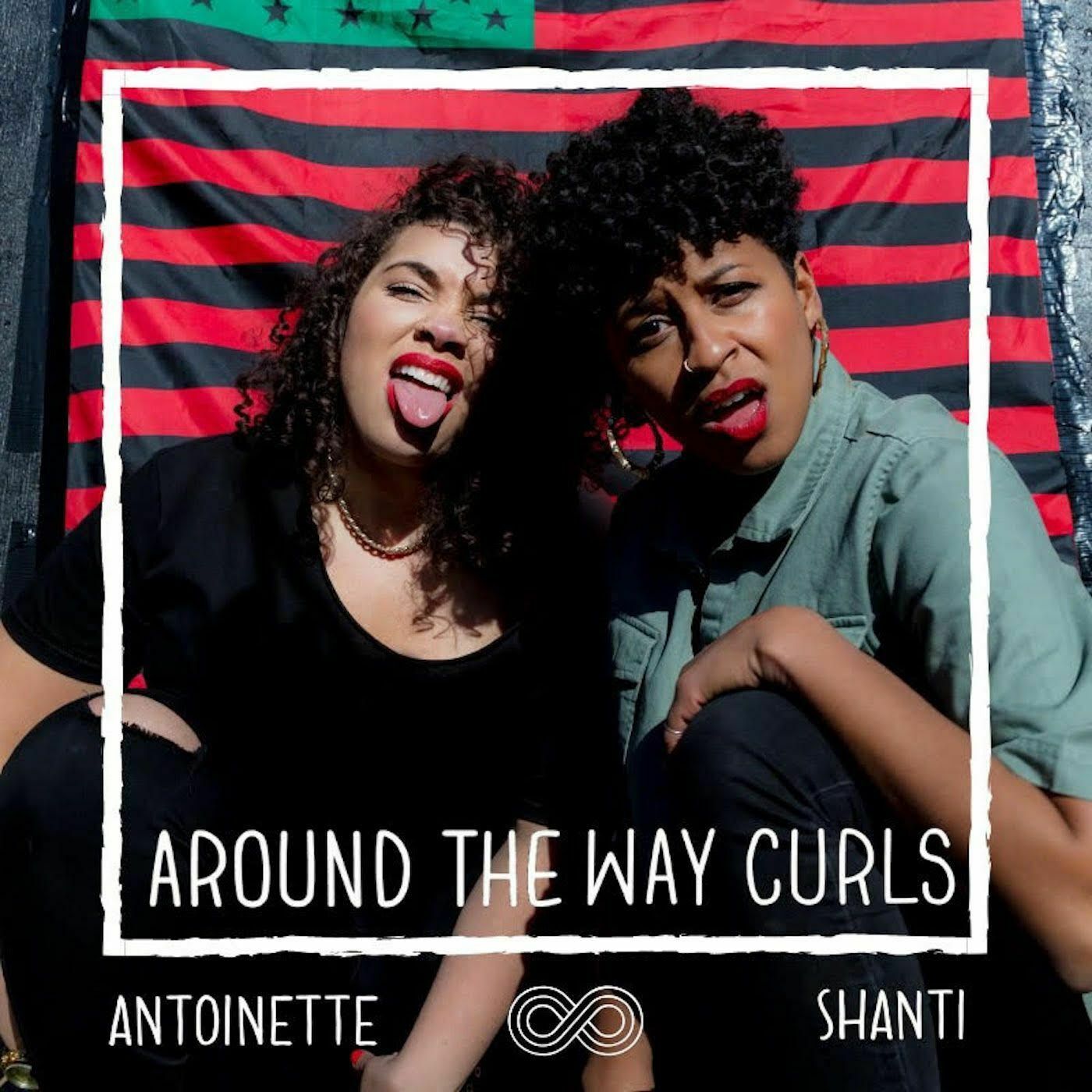
Around The Way Curls
Antoinette Lee & Shanti Mayers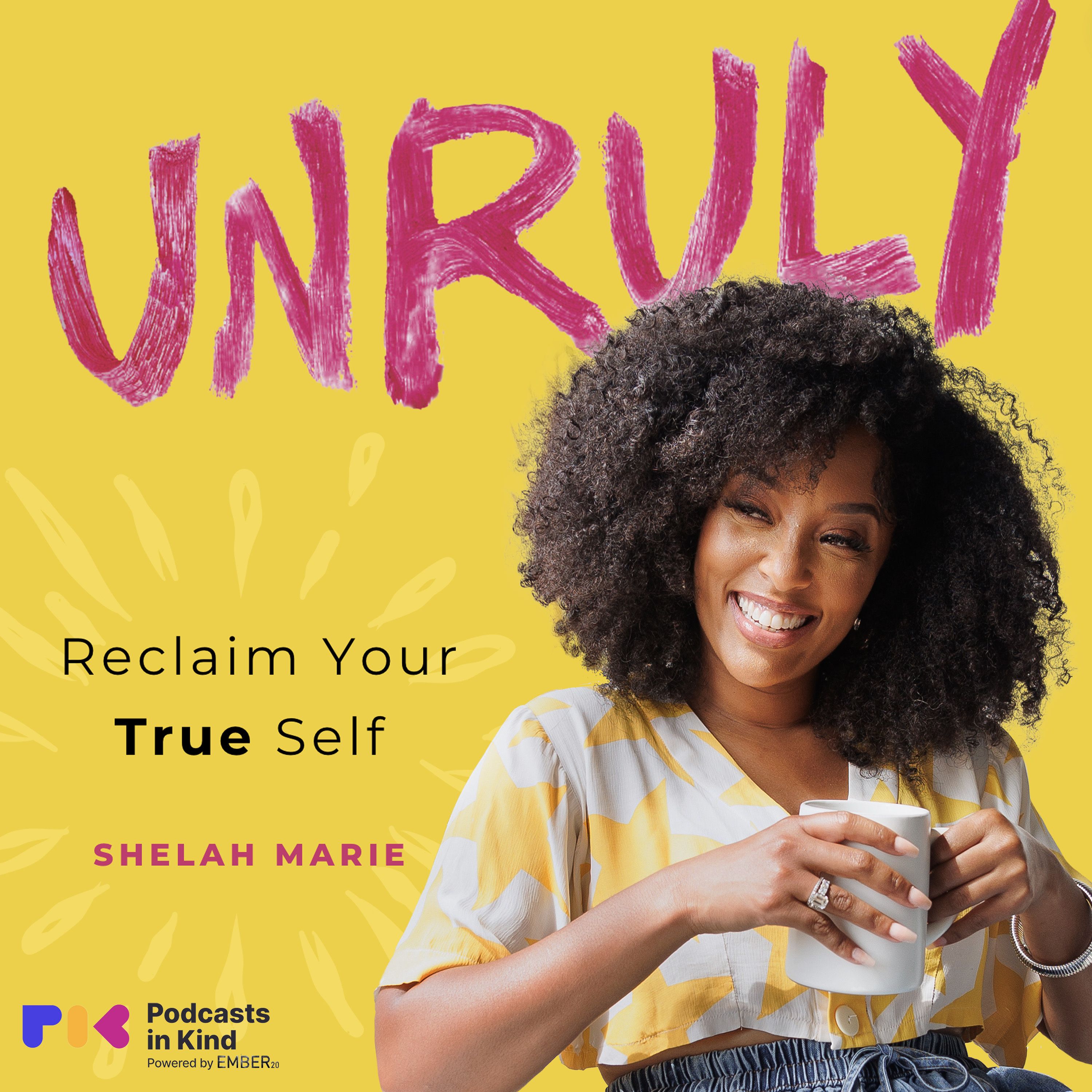
UNRULY WITH SHELAH MARIE
UNRULY WITH SHELAH MARIE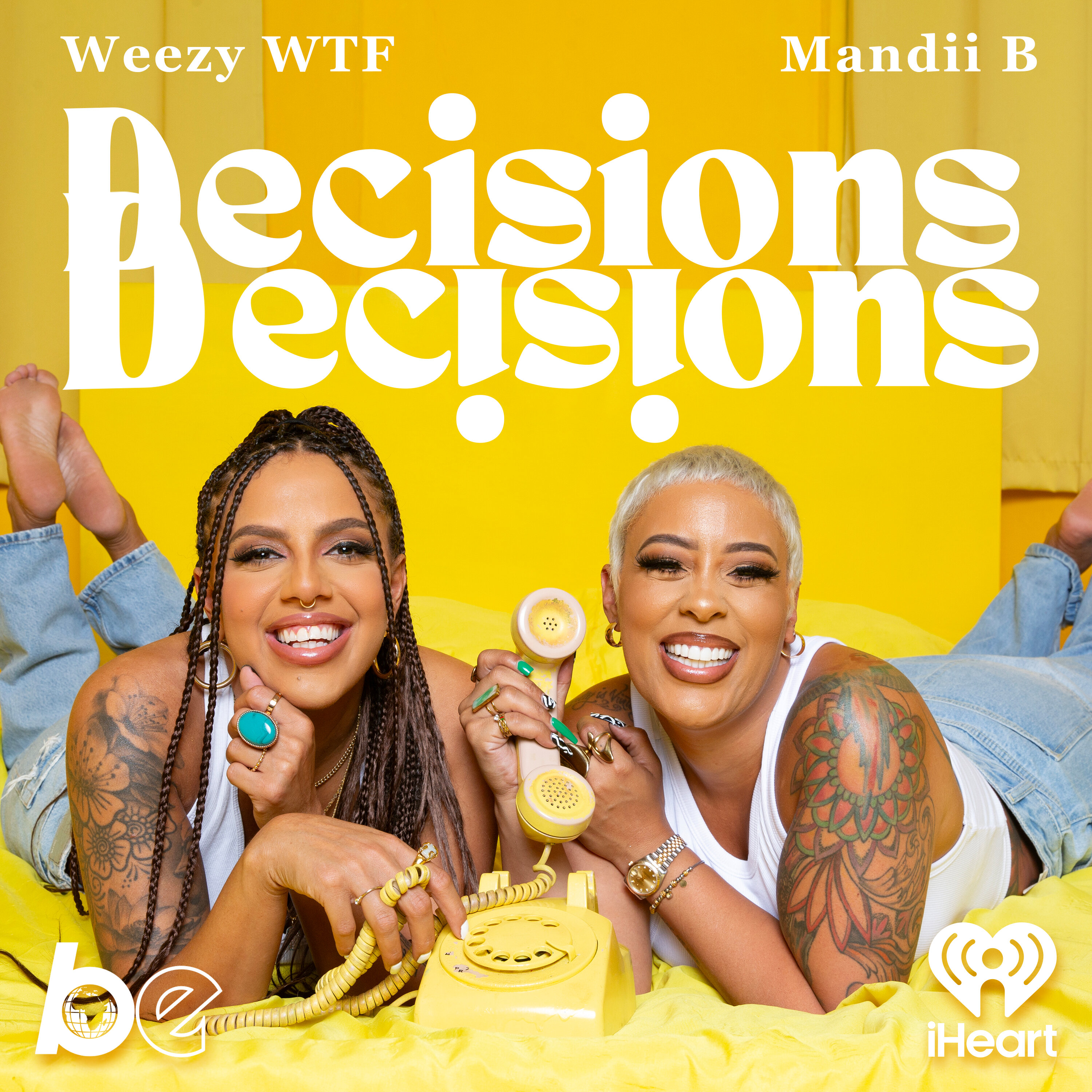
Decisions, Decisions
The Black Effect and iHeartPodcasts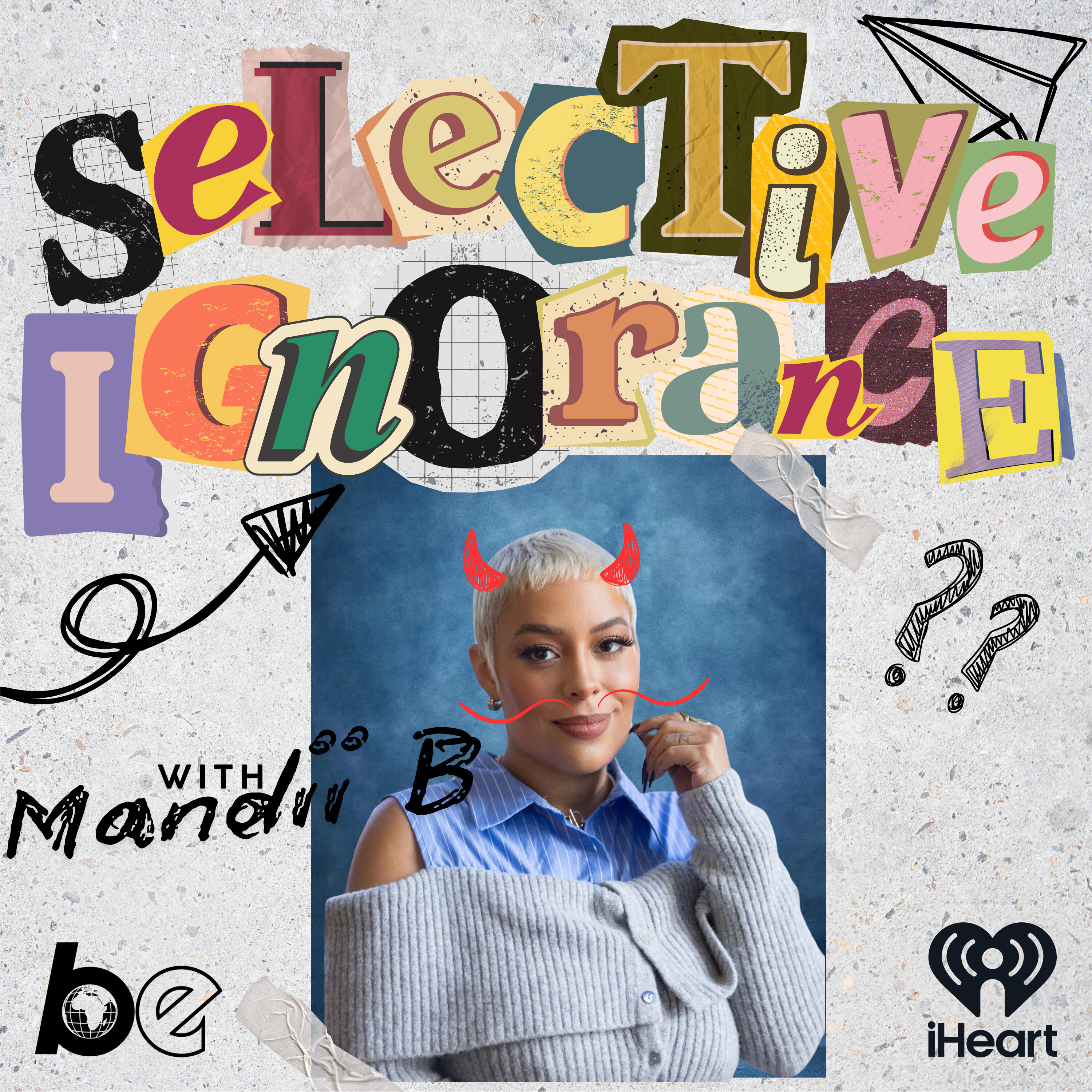
Selective Ignorance with Mandii B
The Black Effect and iHeartPodcasts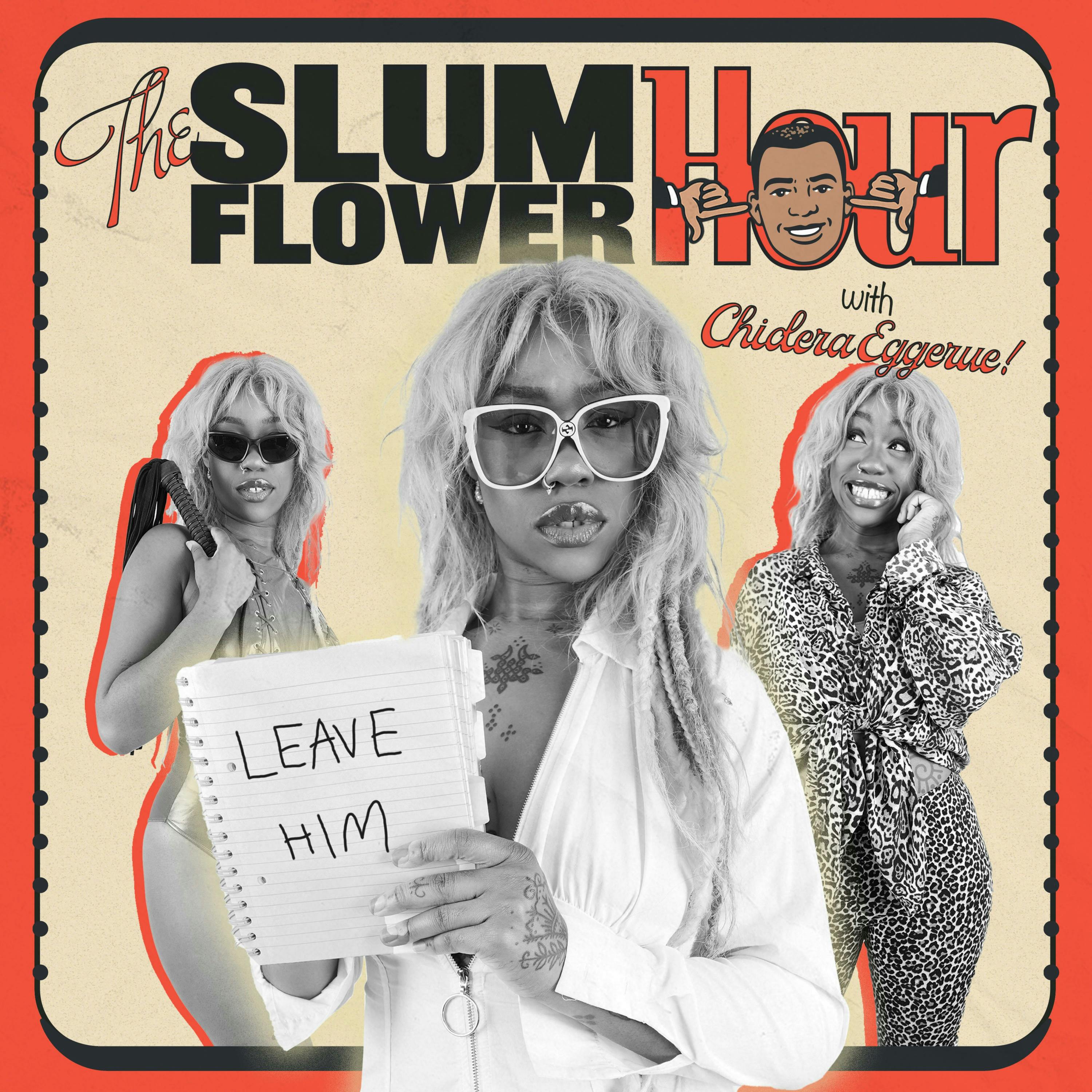
The Slumflower Hour
Chidera Eggerue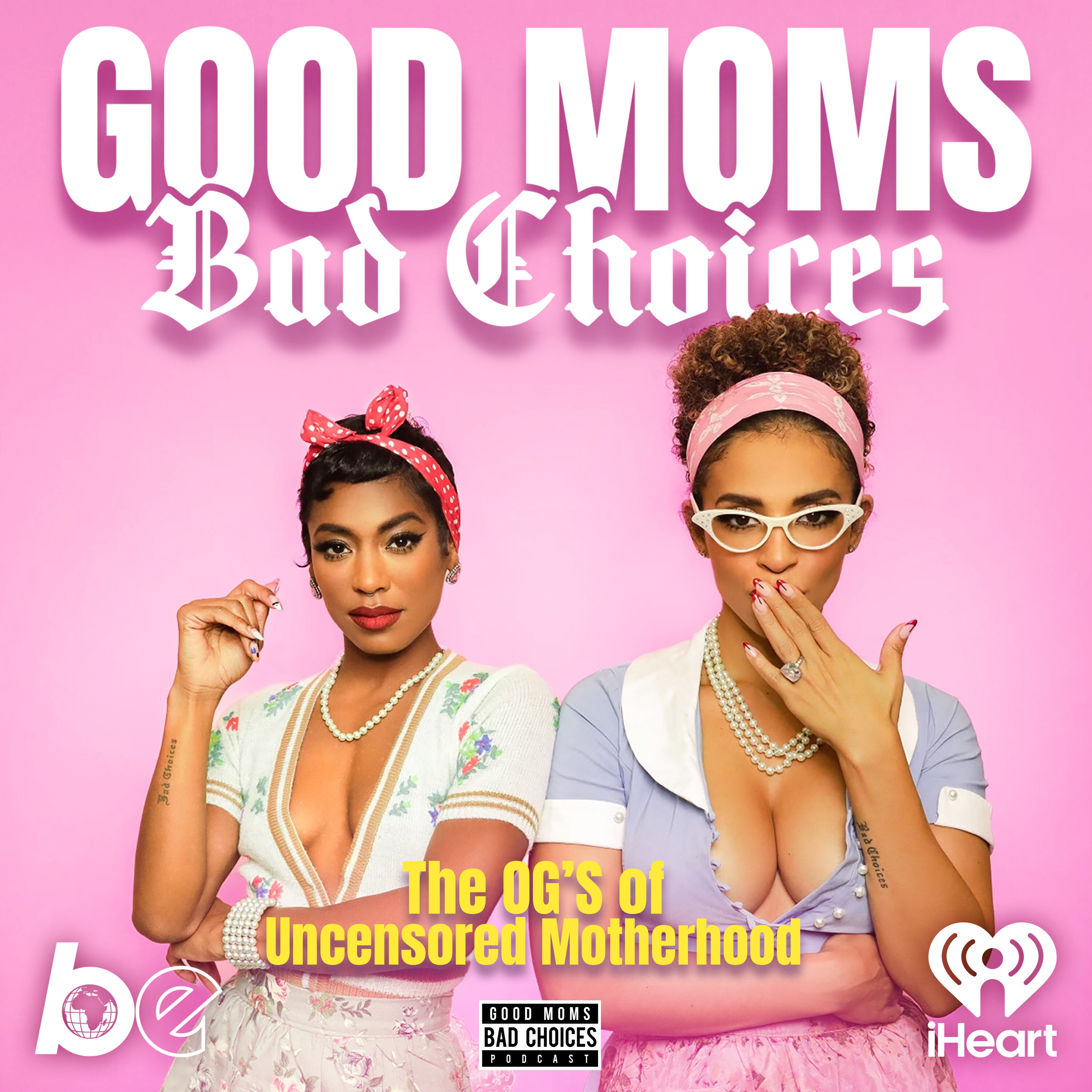
Good Moms Bad Choices
The Black Effect and iHeartPodcasts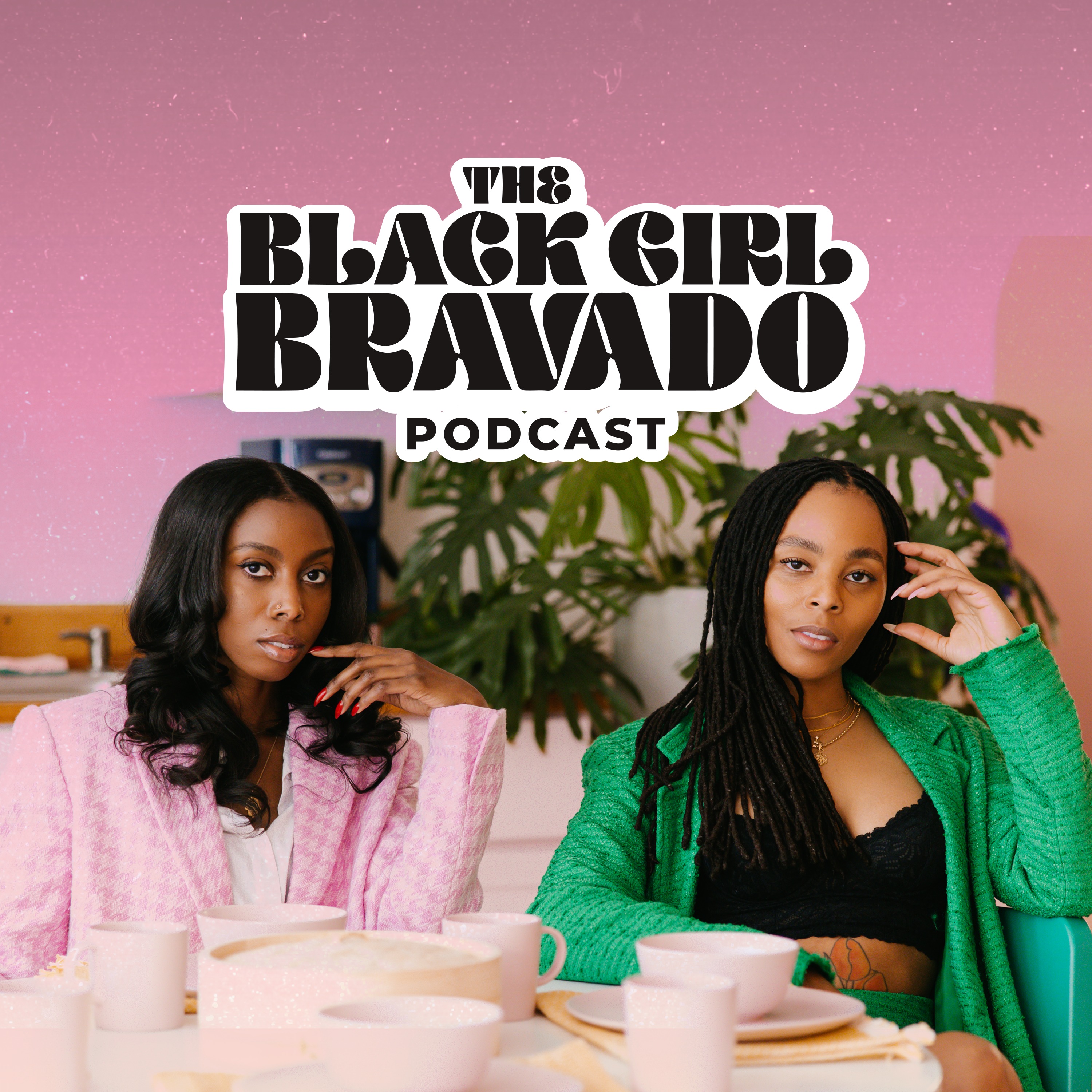
The Black Girl Bravado
Black Girl Bravado
Slay Girl Slay
Ashley Leggs
She's So Lucky
She's So LuckyUpstream
Upstream
SpeakEZ Black Renaissance Podcast
Qadry Harris, M. Div.
Bobo's Void
Bobo, Donavon and Mango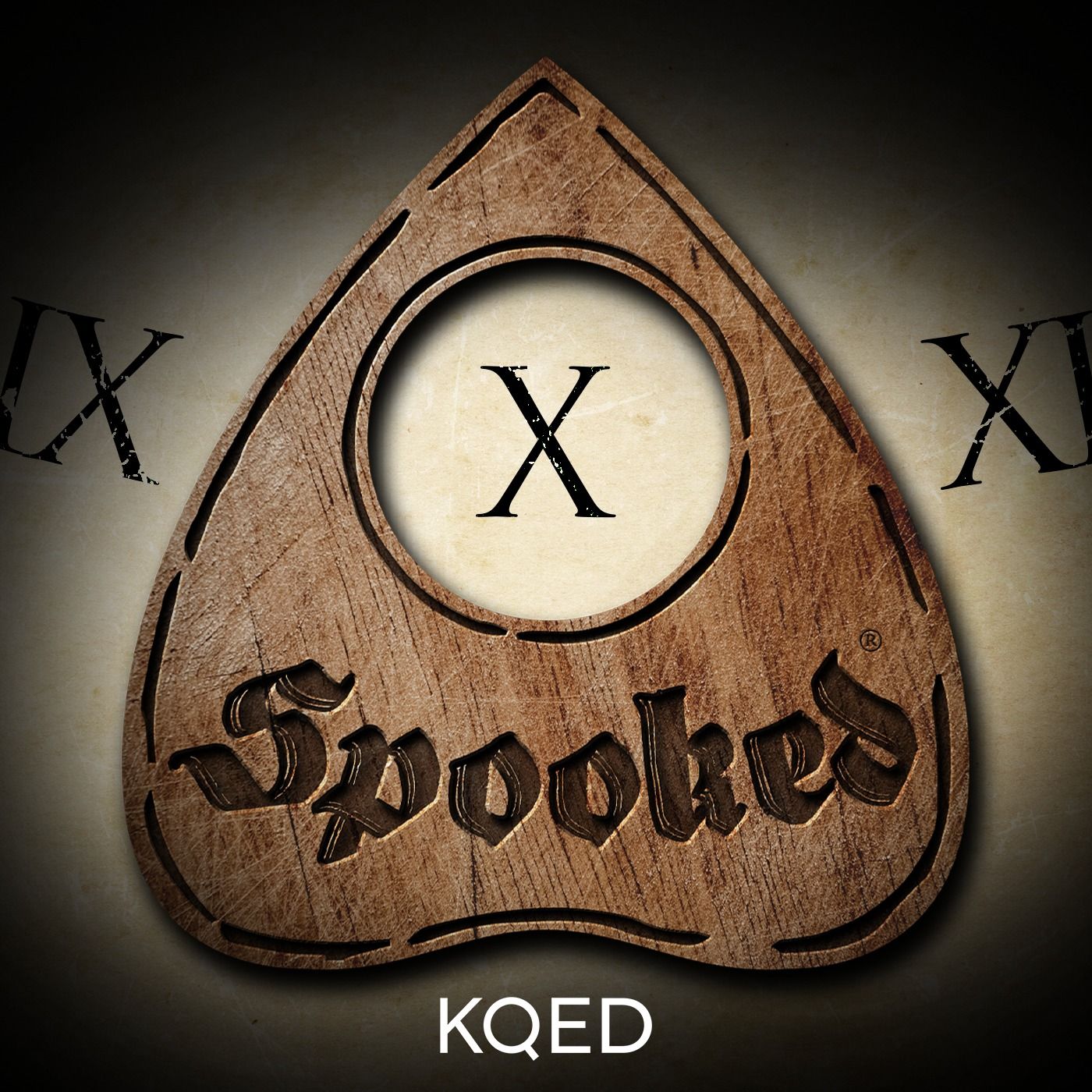
Spooked
KQED and Snap Studios
Caribbean Mystics
SpectreVision Radio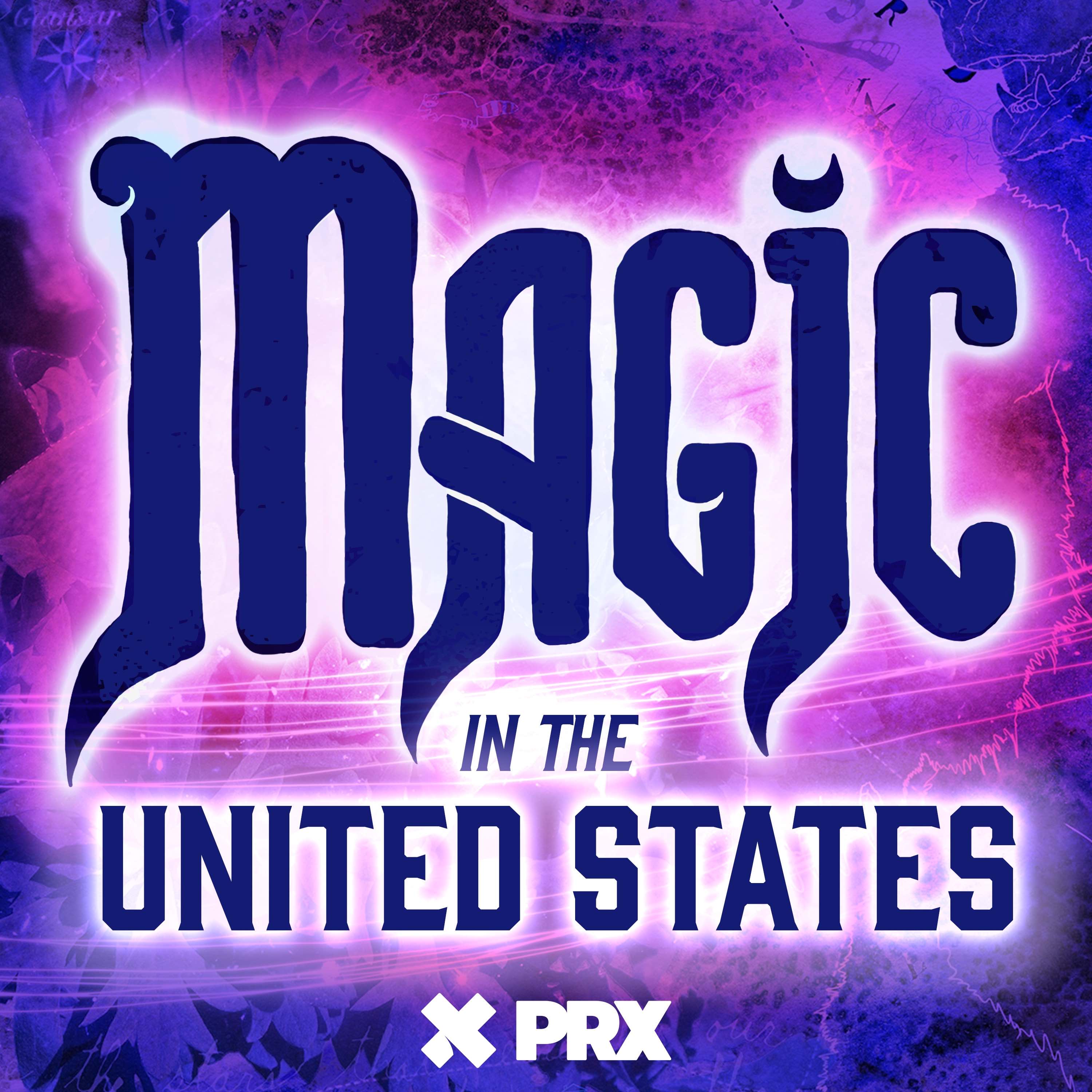
Magic in the United States
Magic in the United States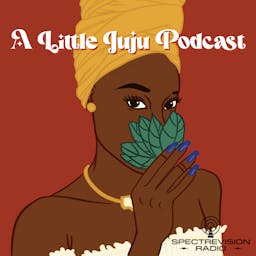
A Little Juju Podcast
SpectreVision Radio
Sensual Faith Podcast with Lyvonne Briggs
Lyvonne Briggs
Our Ancestors Were Messy
Nichole Hill
The Bankrupt Millionaire
Samia Burton
The Love Seat
Lauren Speed-Hamilton and Cameron Hamilton
CultureCon Uncut
Spotify Studios
Hold For Maintenance
Hold For Maintenance

